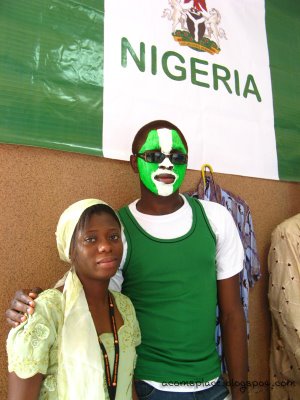
URBANIZATION:
Nigeria is still a primarily rural country, with only 48 percent of its population living in cities. Urban areas, however, doubled their share of the population between 1970 and 1996. The largest Nigerian cities are Lagos and Ibadan. Lagos, one of the world’s largest cities, grew as colonial Nigeria’s capital and leading port.
ETHNICITY:
Nigeria’s three largest ethnic groups—the Hausa-Fulani, Yoruba, and Igbo—represent about 70 percent of the population. About 10 percent of the total population consists of several other groups numbering more than 1 million members each, including the Kanuri, Tiv, and Ibibio. More than 300 smaller ethnic groups account for the remaining 20 percent of the population.
LANGUAGE:
Most Nigerians speak more than one language. English, the country’s official language, is widely spoken, especially among educated people. About 400 native Nigerian languages have been identified, and some are threatened with extinction. The most common of the native languages are Hausa, Yoruba, and Igbo.
RELIGION:
Adherence to Islam, Christianity, or indigenous African religions is central to how Nigerians identify themselves.